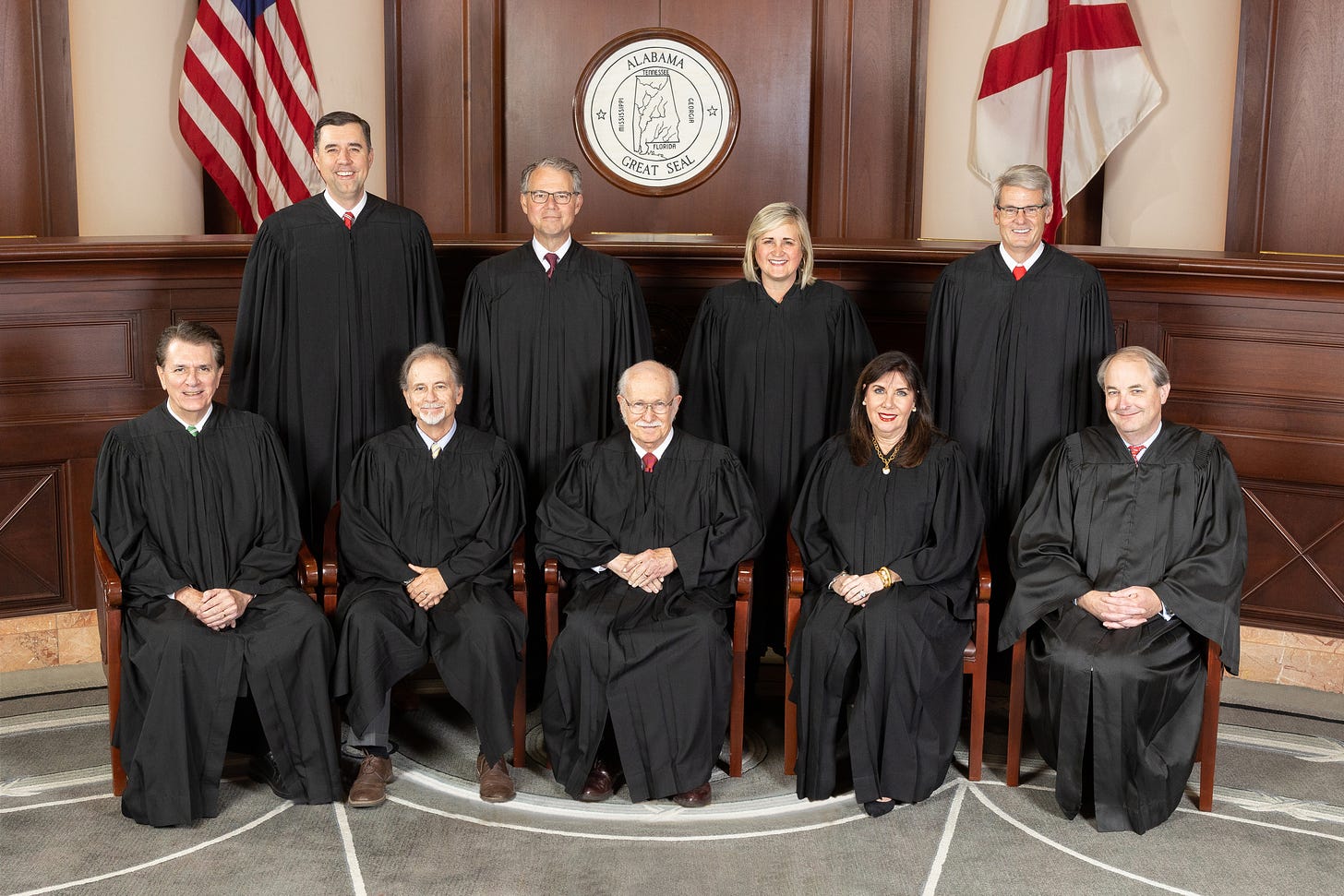Earlier this month, in yet another attack on family planning and reproductive rights in America, Alabama's supreme court ruled that frozen embryos created via in vitro fertilization and cryopreserved in a facility should be considered children, and as such those engaged in the destruction of these frozen embryos could be subject to wrongful death charges.

As a result and in order to analyze the ensuing legal uncertainties of the ruling and the potentially criminal implications of discarding non-implanted frozen embryos, several IVF clinics in the state have already suspended services and placed ongoing treatments on hold.
Because of who I am as a person, I read the court's legal opinion. Within the first four pages, the opinion contains references to "cryogenic nurseries" (based on my research and conversations with specialists, not a term of art in discussing IVF treatments and embryo storage and not a technical term that seems to have been used by the specific Alabama fertility center in question), "embryonic children," and "extrauterine children" in a blatantly manipulative attempt to personify the cluster of cells that makes up a frozen embryo. The concurring opinion, helpfully, draws upon Genesis (yes, from the Bible), in case we start getting any ideas about our country’s increasingly porous separation between church and state.
After Dobbs (2022), which Alabama’s court cites, this was not a surprising development. The U.S. Supreme Court, when throwing the question of abortion’s legality back to the individual states, made it clear that they would entertain further curtailment of reproductive rights under the cover of “protecting children.” And yet, the rationale for this decision is so boldly unwarranted and ill-conceived, it has caught the attention and ire of almost every woman I know.
It feels, in a way, especially callous to use fertility treatments to advance the anti-choice agenda. There are already so many obstacles to IVF: it is expensive, it is time-consuming, and is often a physically and emotionally taxing journey for those who undergo it. Success is not guaranteed. No one wants their frozen embryos to become healthy children more than the people who go through IVF—to render fertility treatments even more inaccessible than it already is makes a mockery of IVF patients’ fervent efforts to become parents.
Keep reading with a 7-day free trial
Subscribe to Hmm That's Interesting to keep reading this post and get 7 days of free access to the full post archives.



